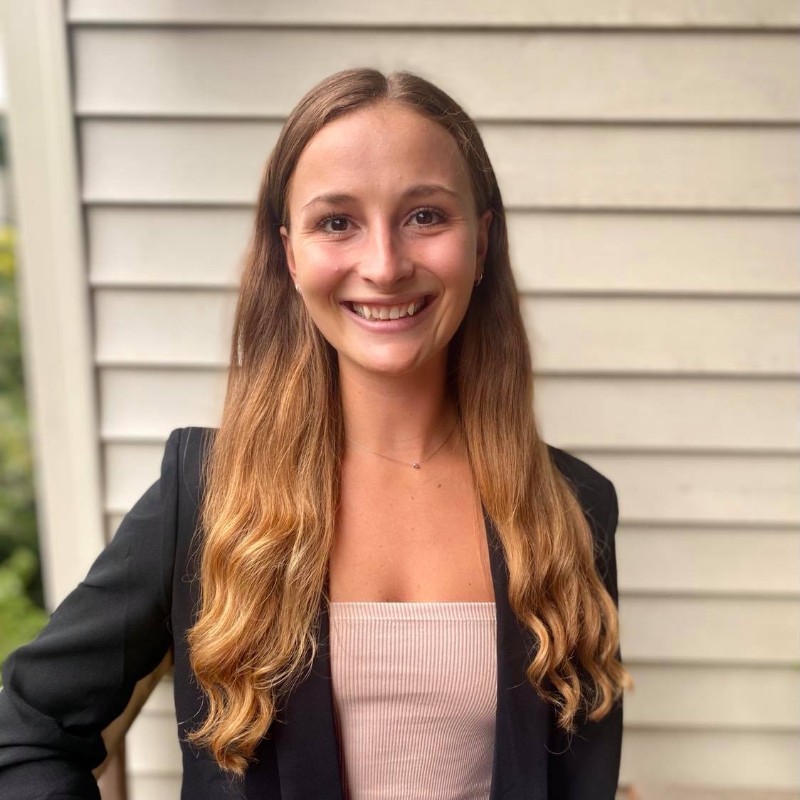Her BU MET Education Wins Graduate Plum Data Scientist Job at Mass General Hospital

Melissa Viator (MET’23)
Data Scientist, Massachusetts General Hospital
MS, Applied Data Analytics
Why did you choose MET for your graduate studies? What set MET apart from other programs you were considering?
Before attending grad school, I knew I wanted to grow my mathematics, computer science, and data analysis skill sets. MET’s MS in Applied Data Analytics (MSADA) program stood out to me because of its comprehensive curriculum in data science. I was also inspired by the professors, who are passionately dedicated to their research, and the students.
How could you adapt to the challenges of balancing work, home life, and school? Did you benefit from MET’s flexible class delivery options?
While the graduate school course load could be challenging and all-consuming at times, the flexibility of MET’s schedule did allow me to pursue additional opportunities outside the curriculum. In my second year of the program, I worked as a data science research student at the Veterans Health Administration (VHA). The flexible class delivery allowed me to develop my academic and professional experience.
What is one piece of advice you would give to someone who is considering applying to this program?
I highly recommend the MSADA program for individuals interested in furthering their knowledge in data science. I suggest using this opportunity to fully immerse yourself in the material and take advantage of the great research opportunities that could lead you to find supportive mentors.
You were a fellow in the Veterans Health Administration’s Big Data Scientist Training Enhancement Program (BD-STEP), which leverages experts in data analysis to improve the quality of care for the nation’s considerable population of veterans in need. You made your research efforts there the centerpiece of a directed study project that made a real impact on the field and on people’s lives. What can you tell us about how your studies in BU MET’s MSADA program supported and complemented your work, turning data into action for a real-world impact?
The professors in the MSADA program encouraged me and my peers to explore research areas that were the most exciting and meaningful to us. With this freedom, I discovered an interest in data science applications in the healthcare sector. This led me to the opportunity at the VHA, where I was able to apply statistical and technical skills acquired in the MSADA program to real-world healthcare applications.
What did your study tell you about the impact of the VHA’s virtual check-ins on vets with hypertension issues? How did you help the VHA better utilize the data it assembled and provided you with?
This research initiative sought to improve the quality of care delivered remotely to veterans with hypertension. Along with the VHA’s team of data scientists and physicians, I was able to pose research questions and draw statistical inferences about the impacts of treating hypertension in a virtual setting. This was a truly impactful project to work on because accessible healthcare options like these can have immense benefits for this patient population.
You’ve gotten exemplary remarks about your performance from many stakeholders. What role did faculty mentorship play in your success in this endeavor? Feel free to share the names of faculty members who enhanced your experience at MET.
Dr. Guanglan Zhang was an incredible mentor and sponsor when I worked as a data science research student at the VHA. Her vast knowledge in the computer science and healthcare fields was very helpful in developing my research. Dr. Zhang gave me insights on where and how to dig deeper into data science projects. I’d also like to thank the incredible team at the VHA, who developed such interesting data science projects to advance healthcare research.
Graduate education can be seen as an investment. Do you feel your time and real-world success in the MSADA program gave you the returns you sought? How do you feel about its professional benefits?
Absolutely! The MSADA program provided me with the academic rigor to understand the math and implementation behind data science applications. While the data science field is ever-changing, I am confident that I have the skills required to understand and adapt to it. After I graduated in January 2023, the program led me to my current position as a data scientist at Boston’s Massachusetts General Hospital, where I implement machine learning models to improve the hospital’s operational efficiency and support physicians with clinical research. I am immensely happy with my investment in graduate school, as it led me to many amazing opportunities!
Published September 2024